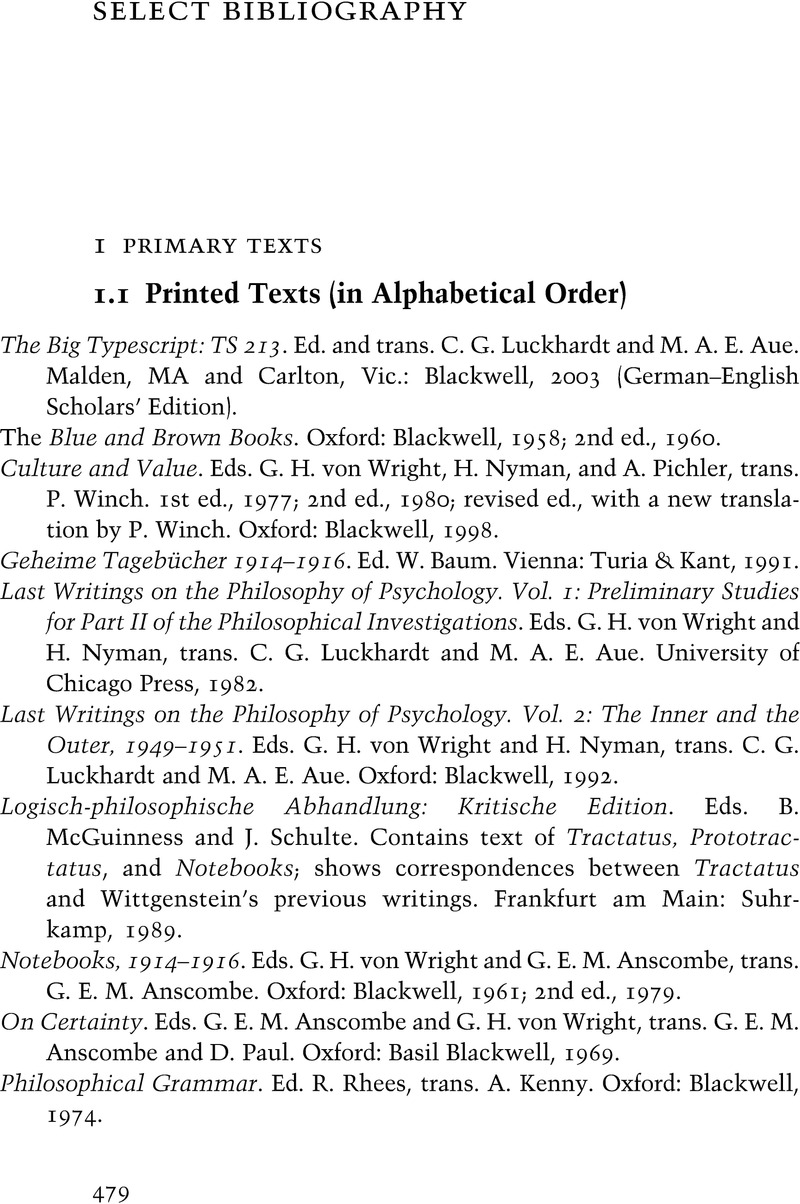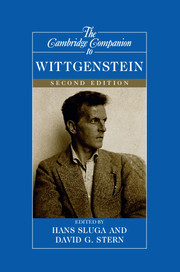Book contents
- The Cambridge Companion to Wittgenstein
- Other Volumes in the Series of Cambridge Companions
- The Cambridge Companion to Wittgenstein
- Copyright page
- Contents
- Contributors
- Abbreviations
- Preface to the Second Edition
- Introduction: Ludwig Wittgenstein: The Man, the Life, and the Work
- 1 Wittgenstein’s Critique of Philosophy
- 2 Pictures, Logic, and the Limits of Sense in Wittgenstein’s Tractatus
- 3 Tractarian Ethics
- 4 Wittgenstein in the 1930s
- 5 A Philosophy of Mathematics Between Two Camps
- 6 Necessity and Normativity
- 7 Wittgenstein, Mathematics, and Ethics: Resisting the Attractions of Realism
- 8 Notes and Afterthoughts On the Opening of Wittgenstein’s Investigations
- 9 Mind, Meaning, and Practice
- 10 Body and Soul
- 11 The Question of Linguistic Idealism Revisited
- 12 Aspects of Aspects
- 13 Forms of Life: Mapping the Rough Ground
- 14 Time and History in Wittgenstein
- 15 Certainties of a World Picture: The Epistemological Investigations of On Certainty
- Select Bibliography
- Index
- Other Volumes in the Series of Cambridge Companions
- References
Select Bibliography
Published online by Cambridge University Press: 18 January 2018
- The Cambridge Companion to Wittgenstein
- Other Volumes in the Series of Cambridge Companions
- The Cambridge Companion to Wittgenstein
- Copyright page
- Contents
- Contributors
- Abbreviations
- Preface to the Second Edition
- Introduction: Ludwig Wittgenstein: The Man, the Life, and the Work
- 1 Wittgenstein’s Critique of Philosophy
- 2 Pictures, Logic, and the Limits of Sense in Wittgenstein’s Tractatus
- 3 Tractarian Ethics
- 4 Wittgenstein in the 1930s
- 5 A Philosophy of Mathematics Between Two Camps
- 6 Necessity and Normativity
- 7 Wittgenstein, Mathematics, and Ethics: Resisting the Attractions of Realism
- 8 Notes and Afterthoughts On the Opening of Wittgenstein’s Investigations
- 9 Mind, Meaning, and Practice
- 10 Body and Soul
- 11 The Question of Linguistic Idealism Revisited
- 12 Aspects of Aspects
- 13 Forms of Life: Mapping the Rough Ground
- 14 Time and History in Wittgenstein
- 15 Certainties of a World Picture: The Epistemological Investigations of On Certainty
- Select Bibliography
- Index
- Other Volumes in the Series of Cambridge Companions
- References
Summary

- Type
- Chapter
- Information
- The Cambridge Companion to Wittgenstein , pp. 479 - 506Publisher: Cambridge University PressPrint publication year: 2017



